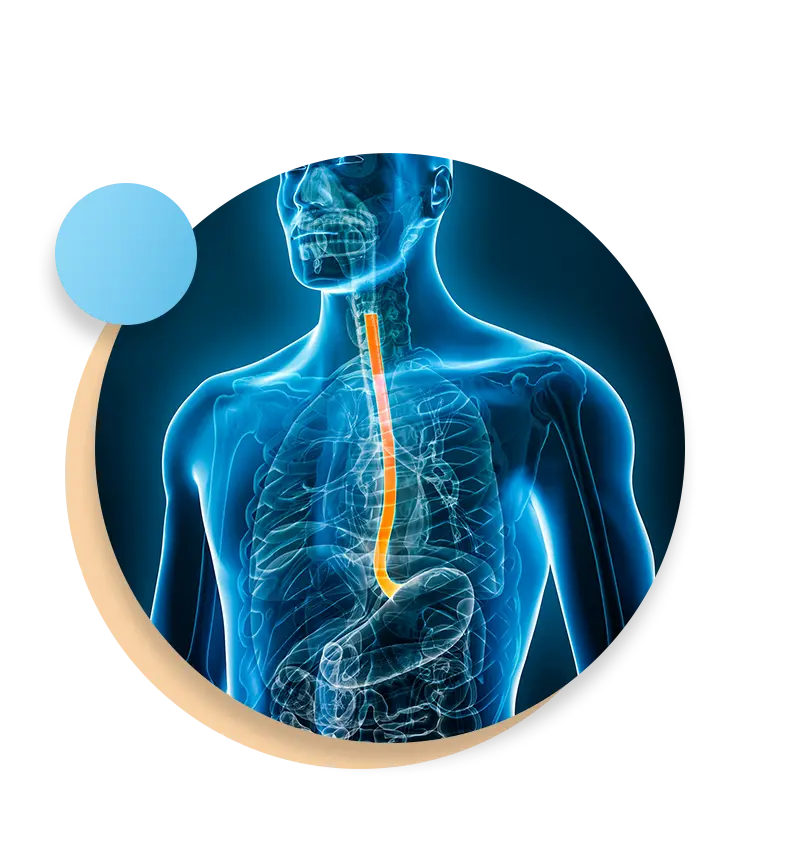Radio Frequency Ablation Therapy
Barrett's Esophagus Defined
Barrett's esophagus is a condition characterized by changes in the lining of the esophagus, primarily caused by prolonged exposure to stomach acid. This alteration in cell structure elevates the risk of developing esophageal cancer significantly. Studies indicate that individuals with Barrett's esophagus face a 50-80 times higher likelihood of developing esophageal cancer compared to the general population.
Risk Factors for Barrett's Esophagus:
Chronic heartburn or acid reflux
Smoking
Family history of esophageal cancer
Gender and Age
Race

Redefine Digestive Health with RFA
If you'd like to learn more about procedures or to
find out if you are a fit candidate or not, please contact us!
Book an Appointmentfind out if you are a fit candidate or not, please contact us!
RFAT At North Shore Digestive Medicine
At North Shore, we specialize in providing comprehensive care for patients with Barrett's esophagus, including advanced treatments like radio frequency ablation (RFA) therapy. Our team of experienced gastroenterologists and medical professionals provides personalized care and effective interventions to manage Barrett's esophagus and reduce the risk of esophageal cancer. If you or a loved one is diagnosed with Barrett's esophagus, schedule a consultation with us today to explore your treatment options and receive the expert care you deserve. Your journey to better digestive health starts here at North Shore Digestive Medicine.
FAQS
Radio frequency ablation (RFA) therapy is a minimally invasive procedure used to treat Barrett's esophagus by ablating abnormal cells from the lining of the esophagus. It involves the application of controlled heat energy to the affected area, which destroys the abnormal cells and promotes healthy tissue growth.
RFA therapy is typically well-tolerated by patients and is performed under sedation or anesthesia to minimize discomfort. Some patients may experience mild discomfort or soreness following the procedure, but this is usually temporary and can be managed with over-the-counter pain medications.
Radiofrequency ablation therapy is highly effective in treating Barrett's esophagus and reducing the risk of esophageal cancer. Studies have demonstrated significant regression of Barrett's tissue and a reduced risk of disease progression with RFA therapy.
While radiofrequency ablation therapy is considered safe, like any medical procedure, there are potential risks and complications. These may include bleeding, perforation of the esophagus, stricture formation (narrowing of the esophagus), and post-procedure discomfort. However, these risks are rare and can be minimized with proper technique and patient selection.
The number of RFA therapy sessions needed depends on the extent of Barrett's esophagus and the response to treatment. Multiple sessions are usually required to eradicate the abnormal tissue. Your healthcare provider will develop a personalized treatment plan based on your individual needs and response to therapy.
Powered by Simple Solutionz
